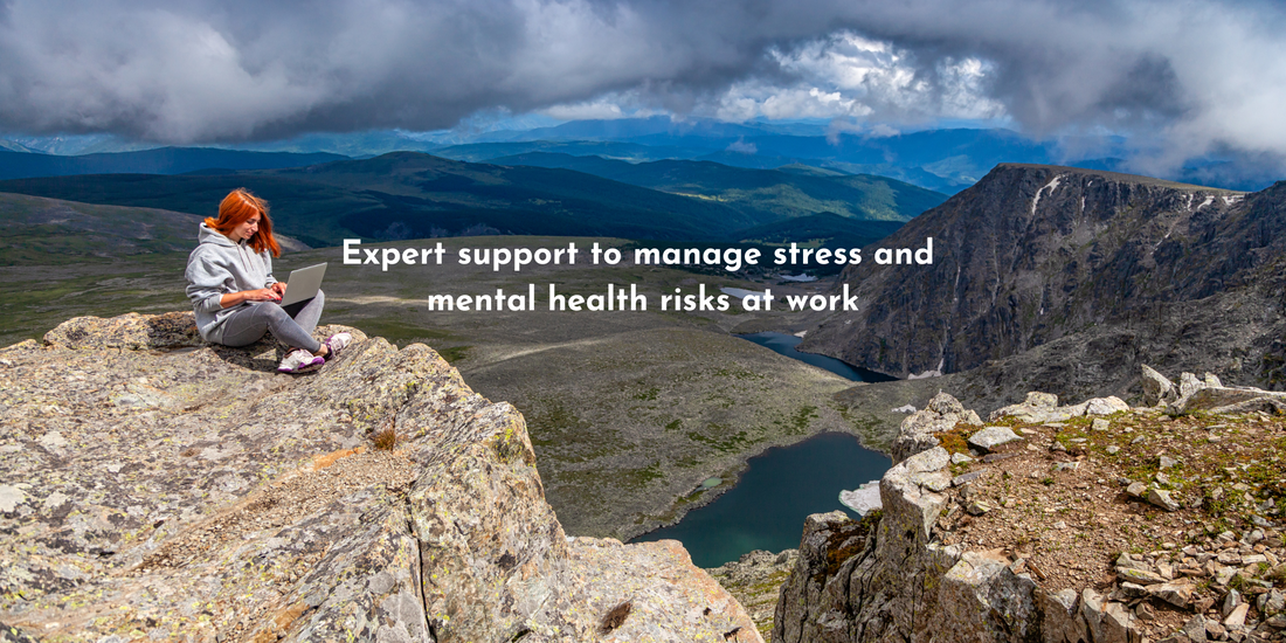Hi and welcome to my website!
 Alan Bradshaw, Business Psychologist
Alan Bradshaw, Business Psychologist
As a business psychologist and consultant, I provide expert support to organisations to help them manage and minimize risks linked to stress and mental health at work. This is done through training, especially for managers who definitely need it most, and consultancy, for example to help organizations develop and implement stress and mental health policies.
Partnering with Occupational Health and Wellbeing Consultancies
Often, I deliver services through partnership working (which I love!), such as with Occupational Health Providers or with HR / Wellbeing Consultancies. If you'd like to find out more about this, please see my partnering page, or contact me directly.
Working with me comes with important benefits!
Notably, you can access a suite of tools I developed to simplify the profiling of stressful situations and development of stress management plans to minimize risks. It also provides access to a menu or training courses, workshops and webinars, including train-the-trainer, and to specialist stress management consultancy services.
Another way you, or the people you support, can access training is via my school, which provides access to online learning for managers, employees and practitioners. That's under construction at the moment. There will be training there for leaders / boards, managers, employees, practitioners and support professionals.
You can also use the stress management best practice framework I developed for organizational management of stress and mental health risks. This framework underpins the training, tools and methodology I developed. It's called APMR and you can find out about that on the Framework page.
Toolkits for Managing Stress Risks at Work
My stress management tools were originally designed to help managers manage stress risks with teams or individuals, although they are helpful for anyone who wants to identify and prioritize causes of stress and take action to manage risks to wellbeing. The tools are particularly useful for stress risk assessments. They can be used proactively, for example to identify and manage stress risks affecting a team, or reactively, to help a manager prevent and reduce stress affecting a struggling individual.
I'm also a director and deputy chair of a social care charity, so I have a special interest in supporting care-related organisations in the management of stress and mental health in the workplace.
Alan Bradshaw, Business Psychologist
Partnering with Occupational Health and Wellbeing Consultancies
Often, I deliver services through partnership working (which I love!), such as with Occupational Health Providers or with HR / Wellbeing Consultancies. If you'd like to find out more about this, please see my partnering page, or contact me directly.
Working with me comes with important benefits!
Notably, you can access a suite of tools I developed to simplify the profiling of stressful situations and development of stress management plans to minimize risks. It also provides access to a menu or training courses, workshops and webinars, including train-the-trainer, and to specialist stress management consultancy services.
Another way you, or the people you support, can access training is via my school, which provides access to online learning for managers, employees and practitioners. That's under construction at the moment. There will be training there for leaders / boards, managers, employees, practitioners and support professionals.
You can also use the stress management best practice framework I developed for organizational management of stress and mental health risks. This framework underpins the training, tools and methodology I developed. It's called APMR and you can find out about that on the Framework page.
Toolkits for Managing Stress Risks at Work
My stress management tools were originally designed to help managers manage stress risks with teams or individuals, although they are helpful for anyone who wants to identify and prioritize causes of stress and take action to manage risks to wellbeing. The tools are particularly useful for stress risk assessments. They can be used proactively, for example to identify and manage stress risks affecting a team, or reactively, to help a manager prevent and reduce stress affecting a struggling individual.
I'm also a director and deputy chair of a social care charity, so I have a special interest in supporting care-related organisations in the management of stress and mental health in the workplace.
Alan Bradshaw, Business Psychologist
